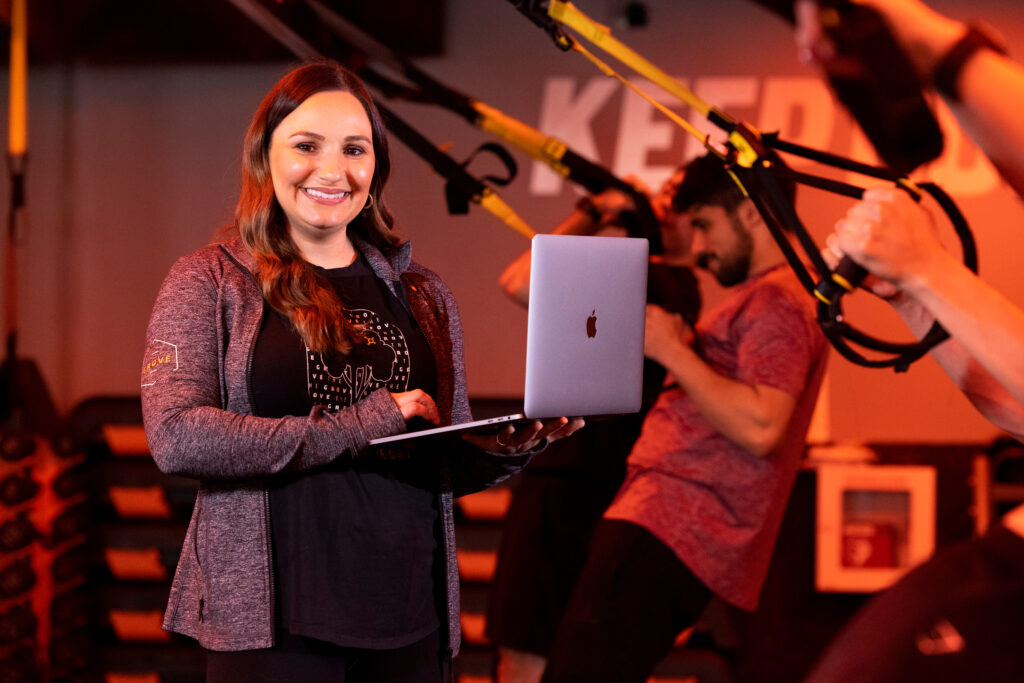When Rachelle Reed MS ’12, PhD ’16 attended a UGA football game as a child, her fate was sealed: She was determined to be a Bulldog.
She achieved that goal by earning her master’s and doctoral degrees from UGA’s Department of Kinesiology in the Mary Frances Early College of Education.
Reed was a competitive cheerleader as a child and throughout college. She worked as a personal trainer and earned group fitness certifications as an adult. That lifelong interest soon became something more. During her time at UGA, Reed began consulting with fitness companies, redesigning exercise science curriculums, attending conferences, and speaking with the media about physical activity and the science of behavior change.
Soon, she took a position that seemed to be created just for her: senior director of science and research for Orangetheory Fitness.
“I love the science and the research, but I also love the application of the research,” Reed says. “Physical activity behavior is hard to change. The question is: How can I get the information into the community and help people move?”
Orangetheory provides variable intensity interval training with the mission of giving “more life” to members through evidence-based physical activity—which is where Reed and her team come in.
Members wear sensors during their workouts to track their heart rate, which tells them when to work harder or decrease effort, in addition to tracking their calories burned. Using this data, Orangetheory customizes their programs.
“My team works with our data analysts and machine-learning scientists to figure out what the data say about improvements in performance and health metrics for members,” says Reed, who works remotely from her home in Athens. “My team and I come into play as subject matter experts on exercise science.”
When Orangetheory wants to incorporate a new exercise or adjust anything, Reed consults existing research to see how those changes can improve member experience and health.
Reed also spearheaded the creation of online content for the company at the start of the COVID-19 pandemic—just a few months after she began. The work her team did over a single weekend earned her an employee of the year award.
“We wanted to provide a bright spot in people’s days and show them that you can exercise anywhere,” says Reed.
Her role has also allowed her to pinpoint an area where she feels she can make an impact: connecting exercise research and the professionals who work with clients every day.
“The research and publication process is a long cycle where it takes forever for information to be relayed to people who are boots on the ground, doing the work,” Reed says.
For her, it’s about access.
“We need people to bridge that gap, to speak the language, to access the literature and apply it to a setting like Orangetheory, where we have millions of people doing these workouts. I’m just a small piece of the puzzle, but I’ve got a lot of fight in me to keep going.”
